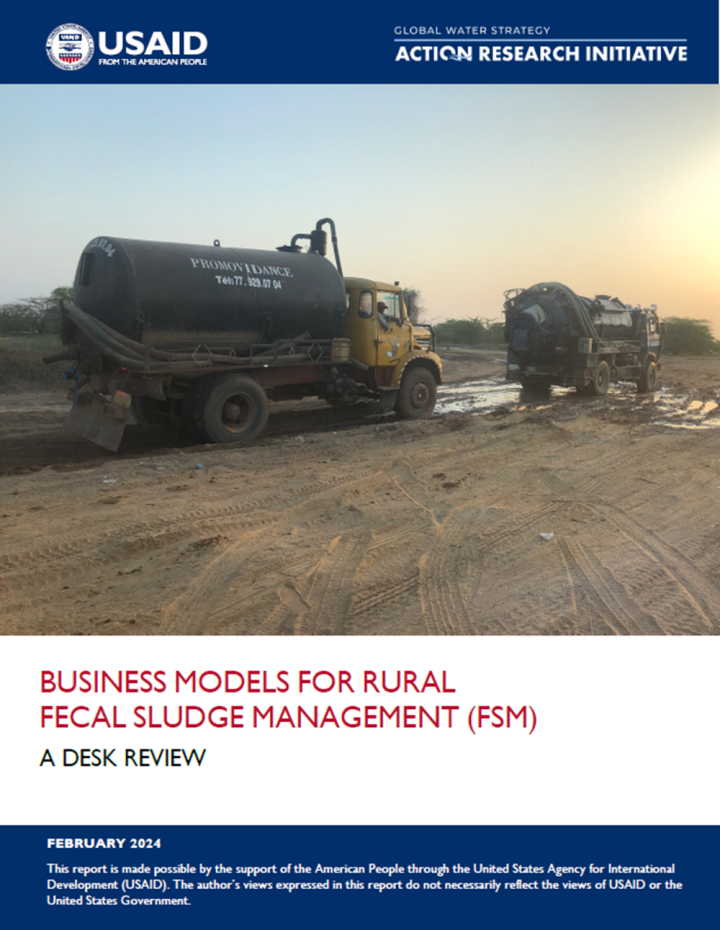
Published in: 2024
Pages: 82
Publisher:
USAID
Author:
Rishi Agarwal, Subhash Chennuri
Uploaded by:
SuSanA Admin
450 Views
1 Downloads
Over the last decade, basic sanitation coverage in rural areas of low- and middle-income countries has progressed significantly, especially in Asia. Sustaining those resulting gains in human, environmental, and community health, all while progressing toward targets of Sustainable Development Goal 6, requires safely managing the fecal sludge generated in on-site sanitation systems.
When latrines are full, some households abandon them and build anew, while others choose to, or must because of their context, empty their pits. Unsafe emptying practices are common when households empty latrine pits themselves or hire (primarily informal) service providers to manually empty, transport, and dispose of or reuse fecal sludge. Safe fecal sludge management (FSM) services in rural areas are relatively new, and knowledge of business models for those services in rural areas is limited.
The USAID WASHPaLS #2 project conducted a desk review to understand the market for rural fecal sludge services, suitable methods along the sanitation value chain, and potentially viable business models involving the private sector in rural areas. The desk review is based on analyses of several examples in Asia and sub-Saharan Africa, key informant interviews, and a literature review. The report offers guidance for stakeholders on contexts where the two identified business models for safe FSM would be most relevant and measures that public bodies (e.g., local governments, utilities) could take to broaden their application.
This report contributes to the knowledge base on area-wide safe FSM solutions, which also may include household-managed and government-operated services
Bibliographic information
Rishi Agarwal, Subhash Chennuri (2024). Business Models for Rural Fecal Sludge Management (FSM). USAID
Filter tags
English














